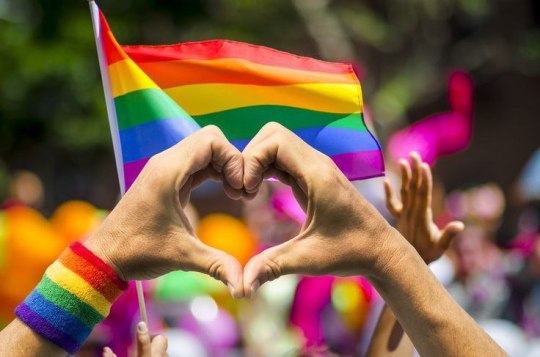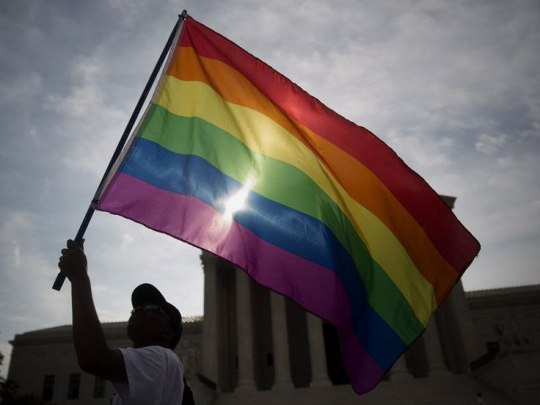Text
In an evolving world people have come up with different ideals, concepts, and standards but as Filipinos move forward some are left behind clinging onto their known culture and religious beliefs. That leads to one of the biggest issues the Filipinos are facing right now, the acceptance of LGBTQ+ community, a group of people that do not conform on these said standard of the society in terms of sexuality, and self expression. Homophobia, a word to describe the hatred and negative attitude/feelings towards homosexuality or to those people that does not follow the gender norms. As stated earlier as the acceptance for the community has been continuously dismissed, homophobia has been rampant to the point that it leads to what we call social injustice. The people in the community experienced abuse, have been treated unfairly and worse have been refused to have an equal basic human rights.
Knowing the severity of the problem the best way to address the issue is to identify the root of the problem first. We can not simply eradicate something that we do not even know in the first place. Acknowledging the power of the internet, we can also use social media platforms to address the alarming issue. Aside from that we can also create organisations or campaigns that have an objective of educating people about the community. In addition to that we can create fun events that will educate them in a more fun and engaging way. There should be some positive representation of them in society too, instead of just portraying them as someone funny and goofy, leading to people not taking them and their experiences seriously.
As a youth that does not have that much means to make a big move to address this issue, the best thing I can do is to educate myself and those small groups of people around me. I should know the small ways I can do to not be part of the problem, such as simply avoiding laughing at jokes that mock them or statements that clearly oppressed the people in the community. Disallowing people around me to project prejudice towards the people I know that is part of the said community can be a big help to even though it might seem like a small gesture. Aside from that I can also use my social media to continuously share my thoughts and opinion about the rights the community deserves to have. These little things can make a big change, and can help the community so we should take it as a start to address the issue in our own ways.
If an individual can do such things as stated earlier, the Government as the law governing body plays a vital role on this issue too. They should be the one that actively addresses the issue as they have the means to give the right and protection the community deserves to have and are entitled to have. They have the power to enforce law and guidelines that provide a safe space for the community for example making the Sexual Orientation and Gender Identity Expression Equality Bill also known as SOGIE Bill that aims to implement laws to prohibit various forms of economic and public accommodation-related discrimination against people based on their sexual orientation, gender identity into an actual law, or legalizing Civil Union to allow them to have a marriage like arrangement that is legally recognized by the law. These two are just examples of the things the government can do that can not completely eradicate the stigma but at least can lessen it. (Dela Cruz, Raisa N.–ABM11-03)
———
Homophobia, this one word is the social injustice that most people in LGBTQ+ are facing right now, specifically in our country. We have millions of people in the Philippines and most of the people I know do not want to welcome gay people or the LGBTQ+ in their way of living. And that is the problem that we have to find a solution to as soon as possible.
As the problem is being talked about right now, we can address it one by one if we are welcome to be educated and to learn about them. They are also human beings who wants to live without being criticized, be feared, and be abandoned by the people around them.
In a way that I know, we should be more open about the things that we have right now in our country. Each people has their own story to tell and has their struggle or problem to solve. We started this blog on this platform because we want people to see what is the current issue, welcome the people around them and learn about them. We encourage you to be open-minded while reading this blog. And if you are one of those people who feared or criticize the LGBTQ+ please take time to read because they don't deserve the hate and the criticism that people throw to them.
As I voice out what I can do to lessen or to educate those people that are homophobic, the government should also do their part in this kind of situation. As they've said, "everything is political". And if a single party or individual can do many things, such as making blogs, vlogs, and articles, to educate those people who wants to be educated about this sensitive topic, what more about the government who leads the country? And speaking of the government and the laws they made, there is the SOGIE bill that is made to protect people from the hate and discrimination that they are facing in this generation. It may not be able to eliminate all of the mistreatment that they are facing, but at the very least they have the law to protect them against those who treat them badly.
In conclusion, I am encouraging you to welcome the LGBTQ+ in our lives and treat them fairly because as I've mentioned earlier, they are also human who want to be understood in any way. (Lajara, Alea Nicole A.–ABM11-03)
———
As teenagers begin to assimilate signals from the outside world in order to develop and express their own gendered identities, society's firm adherence to the gender binary, as well as its norms of behavior and interests for boys and girls, will have a significant impact. Because children are bombarded with messages that their gender identity is determined by what clothing they wear or don't wear, how they style their hair, and how they act, you may find that your counter-message of gender equality and universality is challenged. So far, we've been able to deal with the matter by Physical aggression, name-calling, put-downs, 'jokes,' sexual harassment, threats of property damage, social isolation, and internet bullying are all examples of homophobic bullying. However, LGBT students in the Philippines suffer major issues that jeopardize their safety, health, and educational rights. The Department of Education admits in its new policy that LGBT children are still at significant risk of physical, psychological, and sexual abuse in schools and that many LGBT students do not feel comfortable reporting instances to school officials despite existing legal safeguards. The policy outlines what DepEd officials and school administrators should do to make schools more gender-responsive. Training school personnel to respond to bullying and discrimination in the classroom; incorporating gender, sexuality, and human rights into teacher training programs and school curricula; and observing and celebrating Women's Month, LGBT Pride Month, and Human Rights Month.
by confronting them and reminding them that not everyone is straight. since they want to be in a healthy community, Reduce homophobia and bullying of individuals who want to be themselves completely. There are specific ways for the Department of Education to transform platitudes into protections. Rather than criticizing it, the Department of Education should adopt a uniform policy forbidding discrimination based on sexual orientation and gender identity in all public and private schools, and teach school workers to implement it. In light of widespread abuse of transgender students, which can lead to them missing class, skipping school, or even dropping out, the Department of Education should direct all public and private schools to allow students to wear uniforms, have hairstyles, and use facilities that correspond to their self-identified gender identity.
In conclusion, I believe that everyone should be informed about this problem. Treat everyone fairly and be truthful to yourself. (Dellosa, Jan Loreen R.–ABM11-03)
———




Social injustice (homophobia) is one of the challenges that a Filipino faces in his/her daily life. Homophobia, stigma, and prejudice can be particularly challenging for young homosexual, bisexual, and other males who have sex with men. These negative attitudes increase their odds of being subjected to violence, including bullying, teasing, harassment, physical assault, and suicidal behavior. We can handle these challenges in our own way by giving respect and treating everyone equally, regardless of their sexual orientation or gender identity. Gay and bisexual men, along with their relatives and friends, can take steps to alleviate the physical and mental effects of homophobia, stigma, and prejudice. Having social support is one approach to coping with the stress of stigma and discrimination. According to studies, homosexual men who have good social support from family, friends, and the gay community have higher self-esteem, a more positive group identity, and better mental health.
By decreasing stigma, prejudice, and social injustice, the government can also assist young homosexuals, bisexuals, and other males who have sex with men. A healthy environment is related to less despair, suicidal emotions, substance abuse, and unexcused school absences among LGBT people. It can be managed by enforcing the following policies and procedures: supporting respect for all people, especially homosexuals, and forbidding bullying, harassment, or violence against anyone. Encourage the community and other government officials to produce and publicize training on how to provide safe and supportive environments for persons of all sexual orientations and gender identities and encourage individuals to participate. Whether you are a government official, gay or straight, you can help reduce homophobia, stigma, discrimination in your country, and even the negative health consequences. Supporting a family member, friend, or coworker, for instance, can make a big difference. (Nollan, Marilou L.–ABM11-03)
1 note
·
View note